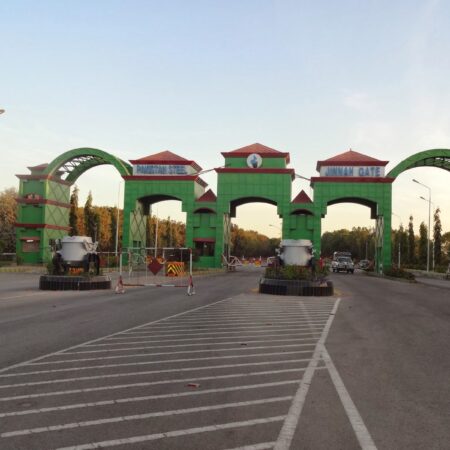By Staff Reporter
KARACHI: Pakistan has scrapped plans to privatize its loss-making steel mills, the largest industrial complex in the country, after the only remaining bidder, a Chinese firm, withdrew its interest amid a global steel slump.
The Senate Standing Committee on Industries and Production was told on Thursday that three other Chinese companies had earlier pulled out of the bidding process for Pakistan Steel Mills Corp (PSM), citing unfavourable market conditions and transparency issues.
Jawad Paul, secretary of the Privatisation Division, said the Privatisation Commission Board decided to halt the sale in a meeting on Oct. 6 and referred the matter to the cabinet for approval.
“The Ministry of Industries and Production will oversee the operations of PSM,” he said.
PSM, which has been shut down since June 2015, has accumulated losses of around Rs30 billion a year. It has over 3,000 employees, with only three officers.
A technical report showed that PSM would need a significant investment to restore its original production capacity of 1.1 million metric tons of iron and steel annually.
The committee also expressed dissatisfaction with the lack of action to prevent theft at PSM, which caused an annual loss of 12.8 million rupees.
The ministry was asked to present its plans for the future of PSM at the next meeting. The cabinet is expected to approve the transfer of PSM from the privatization commission to the ministry, which will then hire a CEO for PSM.
The State Industrial and Financial Corporation (SIFC) will also discuss the cost of production at PSM and seek a viable solution for its revival. This is crucial to understand the foreign currency outflow when production at PSM resumes. In the last fiscal year, iron and steel products worth about $1.89 billion were imported into the country.
Pakistan’s decision to scrap the sale of PSM comes as the caretaker government moved to improve governance at state-owned companies and earmarked 10 for privatization or turnaround efforts, as it strives to deliver reforms under a $3 billion International Monetary Fund bailout.
Under the IMF loan deal, critical in averting a sovereign debt default, state-owned entities (SOEs) whose losses are burning a hole in government finances will need stronger governance.
As of 2020, the accumulated losses for SOEs amounted to Rs500 billion.
Pakistan has also been discussing outsourcing operations of several state-owned assets to outside companies.
In March, it kicked off the outsourcing of operations and land assets at three major airports to be run under a public-private partnership, a move to generate foreign exchange reserves for its ailing economy.
The government has budgeted only about Rs15 billion in receipts from a stalled privatization process in its budget for the fiscal year 2024.
Copyright © 2021 Independent Pakistan | All rights reserved




